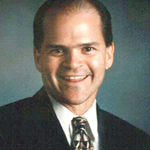The Value of a Preschool Eye Exam
Fourteen years ago, Kentucky became the first state in the country to mandate that children aged 3-6 years old have eye exams before enrolling in school.
The goal was two-fold: improve student learning and improve eye health for children.
On both scores, this law puts Kentucky in the forefront of eyecare, according to Dr. Rick Graebe, a behavioral optometrist in Versailles.
“This is one reason why people consider Kentucky one of the best places to be an optometrist,” he said.
“This law has been responsible for catching a lot of otherwise undetected visual problems in kids.”
In terms of general eye health, the mandated exams – which take about 45 minutes and are usually covered by medical insurance – can detect such serious problems as amblyopia (lazy eye), cataracts and glaucoma.
For example, an estimated 75,000 preschoolers a year are diagnosed with lazy eye.
So for most children, a trip to the optometrist is sufficient.
But a significant number of children may have problems with their visual systems that go beyond a simple eye test.
These are:
- Visual efficiency, or the ability to gather visual information;
- Visual processing where the brain processes what the eye gathers;
- Visual-spatial awareness, or the ability to integrate vision with other systems;
- Motor planning, which is how we physically react to what we see.
If children struggle with one or more parts of the visual system it can slow down their learning, particularly as they reach third or fourth grade.
Up until then, children are learning to read. Thereafter, they are reading to learn.
For children with visual system problems, a visit to a behavioral optometrist like Dr. Graebe can be crucial. Not only can he administer a routine eye exam, he can evaluate the entire visual system.
According to Graebe, “If you have a bright child who isn’t showing how bright he is” he may have a problem with his visual system.
Dr. Graebe’s Vision Therapy program can diagnose and treat issues that can’t be fixed simply by prescribing glasses.
“It’s frustrating for me as a doctor to see kids struggle that don’t need to,” Dr. Graebe said.
“Our system is simple but it’s not easy. It takes work, but it is effective.”

